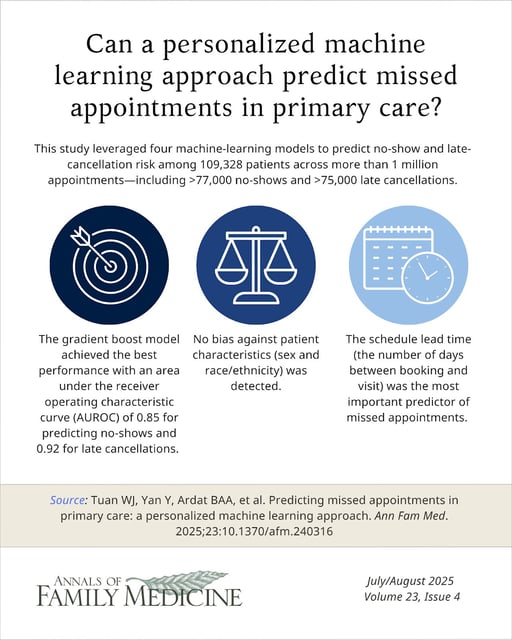Overview
- Gradient boost models achieved 85% AUROC for no-shows and 92% AUROC for late cancellations using data from over 1.1 million appointments at 15 family medicine clinics.
- Model performance was equitable across patient sex and race/ethnicity, demonstrating bias-free predictions in diverse populations.
- Scheduling lead time emerged as the top predictor of missed visits, suggesting clinics could lower risk by shortening booking windows.
- Patients who missed or canceled late tended to be younger, female, underinsured, less fluent in English and facing socioeconomic challenges.
- Researchers advise pairing these risk scores with automated reminders, patient navigation and targeted outreach to strengthen appointment adherence and care continuity.
